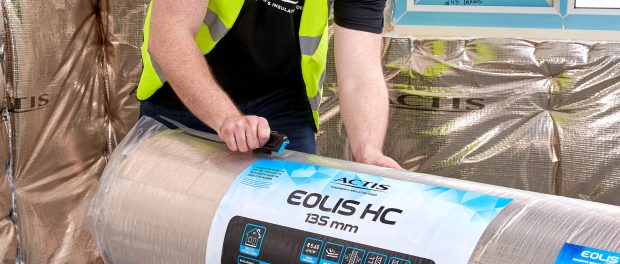Hottest summer on record underlines need to keep homes cool, says Actis
 With the Met Office confirming that 2025 has been the UK’s hottest on record, insulation specialist Actis is reminding specifiers of the role insulation has to play in keeping homes cool.
With the Met Office confirming that 2025 has been the UK’s hottest on record, insulation specialist Actis is reminding specifiers of the role insulation has to play in keeping homes cool.
With the Met Office confirming that 2025 was the hottest summer on record, insulation specialist Actis says keeping homes cool in summer is more important than ever – both for health and comfort reasons and to reduce the need for electricity-guzzling air conditioning.
Though it may seem counterintuitive, installing certain types of insulation can actually help reduce the impact of extreme temperatures, says Actis UK and Ireland sales director Mark Cooper.
He cites Met Office climate scientists who say a summer as hot as or hotter than this year’s is now 70 times more likely than it would have been without any human-induced greenhouse gas emissions.
This year’s provisional average temperature across the country – which includes overnight measurements – is 16.1C, 1.51C above the long-term average.
What is notable says the Met Office, is that the heat has been long-lasting and widespread, with conditions meeting heatwave criteria on four occasions between June and August.
The temperatures have also knocked the famous summer of 1976 out of the UK’s top five hottest summers league, which now means all five of the warmest summers have taken place in the 21st century.
While some forms of insulation can make homes unbearably hot during heatwaves, others, such as those in the Actis Hybrid range and its two-in-one Eolis HC, can actually keep them cool, as well as still performing their traditional warmth-maintaining duties in the winter.
All Actis products have been specifically designed to help buildings stay cool, as well as warm, with the reflective films from which Eolis HC is created reflecting 95% of infrared radiation.
“Specifiers and builders must futureproof the homes they build, and homeowners need to look at retrofitting where possible to ensure that as well as keeping them warm in winter, properties stay cool in summer,” said Mark.
“Under Part O of the building regulations architects are obliged to limit unwanted solar gains and provide a way to remove heat from residential dwellings. As well as strategically siting windows in new builds and drawing curtains, installing reflective insulation can help protect the health and comfort of the occupants.”

